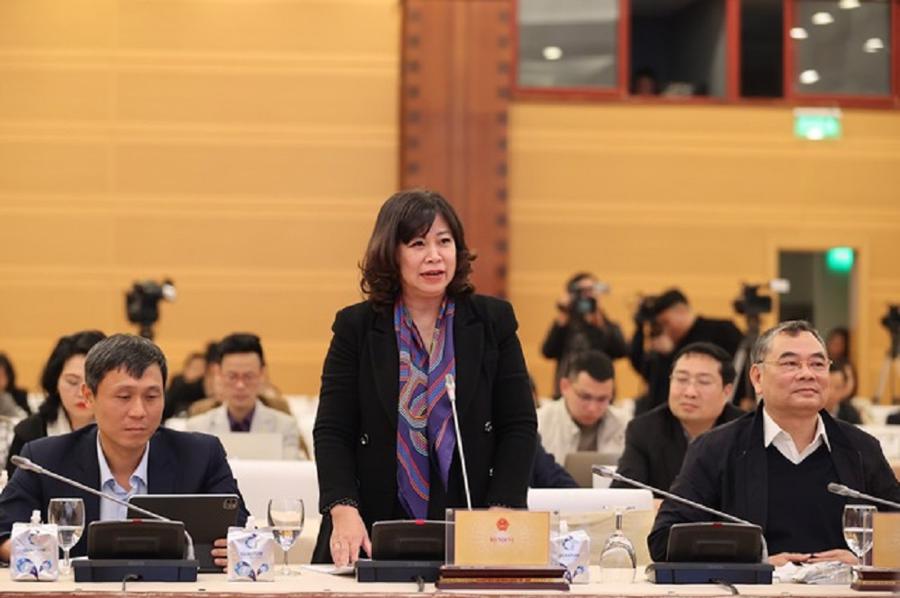At the regular Government press conference in February, Deputy Minister of Salary (Ministry of Home Affairs) Nguyen Bich Thu provided some information on the progress of completing documents to implement the new salary policy from July 1, 2024.
In implementing Resolution No. 27-NQ/TW, dated May 21, 2018 of the 7th Plenum of the 12th Central Executive Committee on salary policy reform for officials, civil servants, public employees, armed forces, and employees in enterprises; based on Conclusion No. 64-KL/TW dated October 18, 2023 of the 8th Plenum of the 13th Central Executive Committee on socio-economic affairs, Resolution No. 104/2025/QH15 of the 15th National Assembly, after having resolutions and conclusions of the National Assembly, the Prime Minister immediately issued Decision No. 135/QD-TTg on January 31, 2024, issuing a plan to implement the salary reform for officials, civil servants, public employees, armed forces, and employees in enterprises.
In this plan, it is clearly stipulated the specific tasks, specific content, and clear assignment for ministries, agencies, and localities in order to implement the objectives of the resolution and ensure the progress as required.

The Ministry of Home Affairs is assigned as the standing agency of the State Administrative Reform Steering Committee, in which it presides over and consults on some tasks:
First: Building a report to the Party Central Committee on specific contents of the new salary regime, at the same time, it must evaluate the impacts when reforming the salary policy on social insurance policies, preferential treatment for people with meritorious services, and social subsidies.
Second: After receiving opinions from the Party Central Committee, it must draft a proposal to the Government to issue a decree on the new salary regime for officials, civil servants, public employees, and armed forces. Afterwards, in the following years, it must also develop decrees to adjust the salary regime according to Conclusion 64.
Third: Coordinate with relevant agencies to build normative documents to implement the new salary regime.
Currently, in the task of building a report to the Party Central Committee, the Ministry of Home Affairs is completing the dossier to prepare for submission to competent levels before submitting for opinions from the Party Central Committee. After receiving opinions from the Party Central Committee, this will be the basis for Party agencies, the National Assembly, and the Government to issue documents.
Specifically, the Government will issue a decree on the salary regime for officials, civil servants, public employees, and armed forces; the National Assembly will have a resolution of the Standing Committee of the National Assembly on the new salary regime for officials, civil servants belonging to the bodies of the National Assembly, Provincial People’s Councils, and district-level People’s Courts, People’s Procuracy, State Audit. The Party will have a decision of the Party Central Committee on the new salary regime for officials, civil servants belonging to Party agencies, the Vietnam Fatherland Front and political-social organizations.
In addition, the Ministry of Home Affairs will issue more than 10 circulars to guide the implementation of the salary regime. “We are making every effort and will ensure the progress according to the plan issued by the Prime Minister,” affirmed Ms. Thu.















